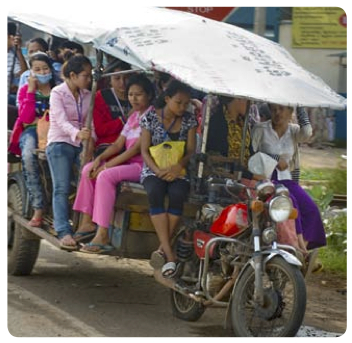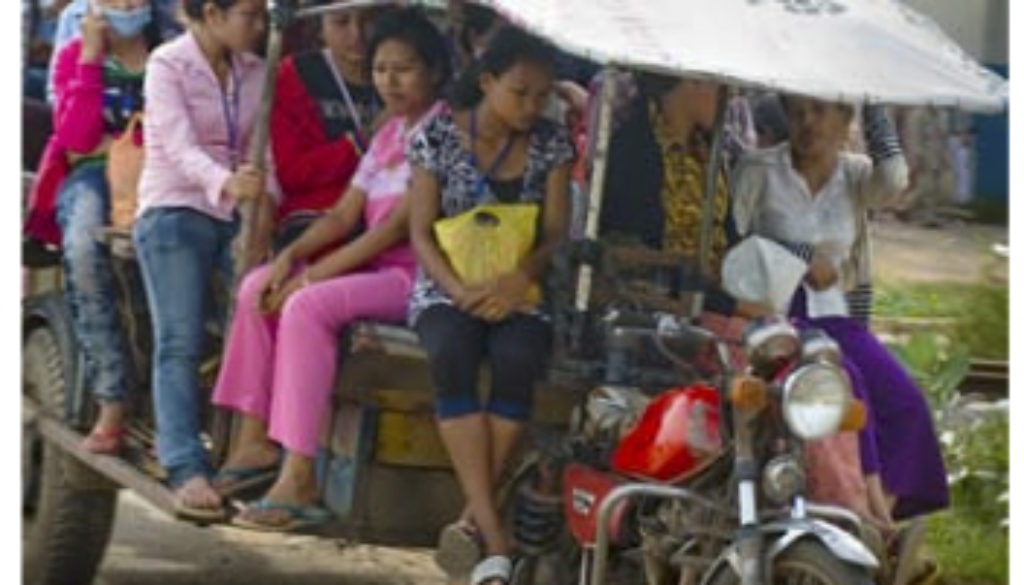The Real Cost
Often when we purchase a piece of clothing, we hardly glance at the tag to see what it’s made of or where it’s made in. Our thoughts are more likely to be centred on its design and appearance. We ask ourselves whether it looks appealing on us, or on the person we’re hoping to give it to. We don’t think about the young woman working excessive hours, hunched over a sewing machine, making barely enough to support her family’s basic needs.
 The garment industry in Cambodia employs over 500,000 workers and is a $5 billion dollar export industry. Thousands of young women travel from rural villages to garment factories, working in poor conditions for 70 hours a week so that they can earn enough to support their parents, siblings, and even grandparents. Most make only a little over $3 a day. Financial desperation makes them easy targets for traffickers and others seeking to exploit them.
The garment industry in Cambodia employs over 500,000 workers and is a $5 billion dollar export industry. Thousands of young women travel from rural villages to garment factories, working in poor conditions for 70 hours a week so that they can earn enough to support their parents, siblings, and even grandparents. Most make only a little over $3 a day. Financial desperation makes them easy targets for traffickers and others seeking to exploit them.
Scores of large garment factories, producing clothes for brand names most of us would be familiar with, surround the village of Prey Romeas where we have recently completed the construction of our community centre. Many of the families in the area are in the grip of poverty and are desperate for a way out. With the increase in factories around these villages, teenagers are taken out of school and sent to work making clothes so that they can help support their families. The community centre will encourage education and host classes to give students the skills they need to gain higher paying jobs. It is also taking a long-term approach to vulnerability and poverty in Prey Romeas – offering quality education for children and young adults so that they will go on to become part of a long-term solution.
Even though the centre has not officially opened, English and Computer classes are already taking place, serving over 100 students a week! The opening ceremony will be held in the beginning of December, and they are inviting over 1,000 people from the nine surrounding villages to the event.
We can make a difference here at home as well as in Cambodia by being informed consumers. By making ethical shopping decisions, consumers have the power to change corporate practices. There are some helpful resources online that provide ratings for products, companies and brands. They can tell you where your products are coming from and how they are being sourced. You can also directly support vulnerable communities like Prey Romeas by giving a gift of love this Christmas and donating in honor of a friend or family member!

